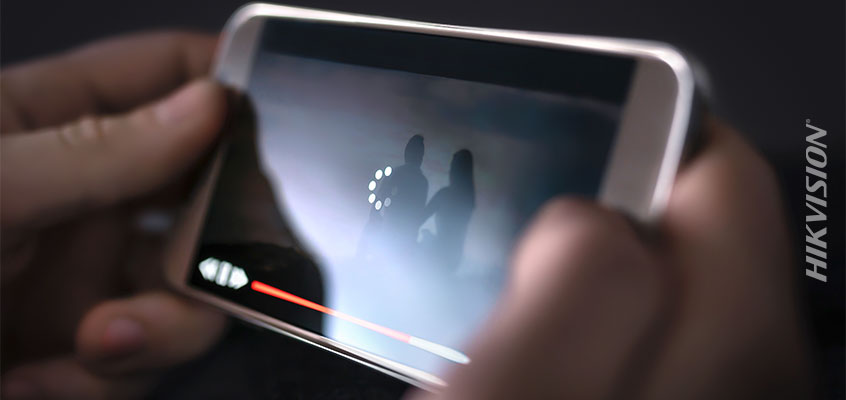Hikvision Senior Director of Cybersecurity on Concerns, Hacks and Vulnerability Exploits: Streamed Movies with Malware, Instructions to Improve Private DNS Security

Hikvision’s senior director of cybersecurity, Chuck Davis, has written numerous recent blogs on the rise in COVID-19 phishing attacks, hacks and vulnerability exploits. Today’s blog is about a rise in movies infected with malware, and step-by-step instructions to improve private DNS (domain name system) security.
Movies Infected with Malware
With so many people in self-isolation at home, streaming movies is very popular, but not all of that streaming is through the proper channels. Pirated streaming services and pirated movies are also in high demand during the COVID-19 pandemic, and threat actors are taking advantage of this trend.
Researchers at Microsoft Security Intelligence tweeted, “With lockdown still in place in many parts of the world, attackers are paying attention to the increase in use of pirate streaming services and torrent downloads. We saw an active coin miner campaign that inserts a malicious VBScript into ZIP files posing as movie downloads.”
The good news is that if you are streaming through Netflix, Hulu, Apple TV, Amazon Video or other paid streaming service, this attack doesn’t apply. However, if you are illegally downloading movies via a torrent, you are at risk of falling for this attack.
Bleeping Computer reports that the Kaspersky researchers who discovered those phishing attacks, "found more than 20 phishing websites and 925 malicious files that were presented as free movies, only to attack the user." The researchers also offered this advice: "To avoid being tricked by criminals, stick to legal streaming platforms and subscriptions to ensure you can enjoy a nice evening in front of the TV without having to worry about any threats."
More Secure and Private DNS
This tip is a little technical for some people but it’s important and relatively easy to do.
DNS stands for Domain Name System and it works like a directory or phone book of the Internet. Humans use domain names, like Hikvision.com, to navigate the Internet, but computers need to use IP addresses. DNS takes the domain names that we enter into our computers, and turns them into the right IP address. Cloudflare has a good explanation here if you want more detail.
By default, your Internet Service Provider (ISP) gives your computer access to their DNS servers. This means that your ISP can see all of the websites that you look up. So while you might have an encrypted https connection to many sites, your ISP still knows where you go on the Internet. Many people don’t like this, so they replace the DNS servers on their home networks and their devices, to point to alternate DNS servers.
Some of these services also will block known malicious IP addresses so you get some additional security and privacy benefits. And the best part is that it’s free! Two of the more popular services today are Cloudflare’s 1.1.1.1 and IBM’s Quad 9 DNS services. You can follow those links to find out more information about how they work and how to use them.
Before you decide on a DNS service, you may want to see who provides the fastest DNS service to your home or office. You can test this by using Gibson Research Corporation’s free DNS Benchmark tool.
